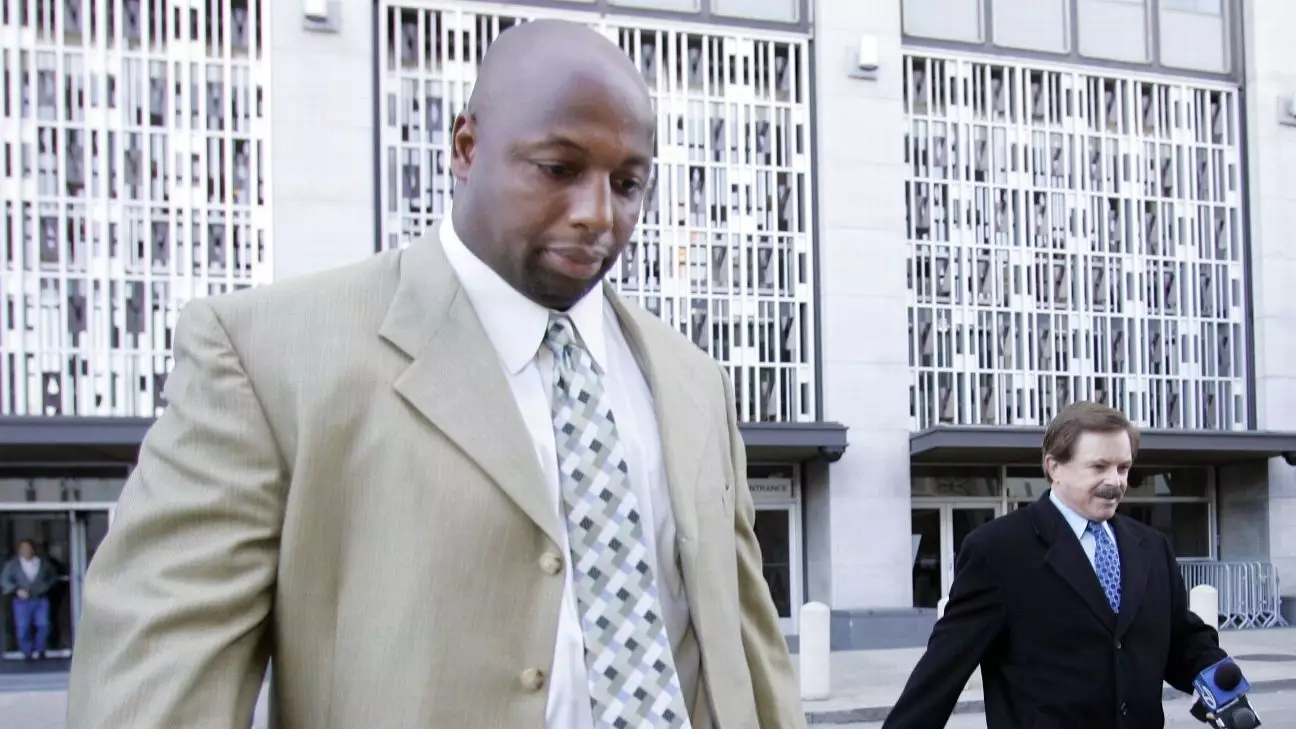Dana Stubblefield, a former star for the San Francisco 49ers, presents a significant case that illuminates the intricate intersection of sports fame, legal challenges, and racial dynamics within the judicial system. Once convicted of rape in 2020, his conviction was vacated in December 2024, yet the journey toward his freedom remains fraught with legal obstacles. This article will delve into the multifaceted aspects of Stubblefield’s case, examining the implications of the legal rulings, the critical role of racial bias in judicial proceedings, and what this means for similar cases going forward.
Stubblefield was convicted for raping a developmentally disabled woman in a case that drew considerable public attention. The prosecution argued that he deceived the victim into coming to his home under the pretense of offering her a babysitting job. Stubblefield and his defense maintained that no crime occurred, asserting that the encounter was consensual and involved an exchange of money for sexual favors. This dichotomy of narratives positions Stubblefield’s case at the heart of a broader discussion about consent, vulnerability, and victimhood.
In October 2020, Stubblefield was sentenced to 15 years to life, a harsh sentence that reflected the severity with which the legal system treats sexual assault cases. However, his conviction’s basis has been heavily scrutinized, culminating in a December 2024 ruling by the Sixth District Court of Appeal, which cited significant judicial errors related to racial bias influencing the trial’s proceedings.
Racial Bias and Judicial Oversight
The appellate ruling that vacated Stubblefield’s conviction is pivotal, not just for Stubblefield, but as a reflection of systemic issues within the legal framework. The court found that prosecutors had violated the California Racial Justice Act of 2020, which prohibits the introduction of racial considerations in criminal prosecutions. The usage of “racially discriminatory language” during trial created a sufficient basis for overturning Stubblefield’s conviction, indicating a critical misstep in legal practices that potentially impacted the jury’s perceptions and decisions.
This ruling has significant ramifications beyond Stubblefield’s case. It raises pressing questions about how racial bias can infiltrate judicial outcomes and the urgent need for systemic reforms to address such biases. The decision underscores a critical awareness among courts regarding the implications of race in legal processes, urging other cases to be evaluated under this newly heightened scrutiny.
Despite the appellate court’s ruling, Stubblefield remains incarcerated, as Judge Hector Ramon’s recent decision to deny bail emphasizes the complex legal navigation still at play. His attorneys argue there are no valid grounds left for his continued imprisonment, contending that the legal landscape has shifted dramatically since the original conviction was vacated. Nonetheless, the judge has maintained that jurisdiction remains with the appeals court until a formal remittitur is issued, prolonging Stubblefield’s period of uncertainty.
Stubblefield’s legal team, led by attorney Ken Rosenfeld, expresses frustration at what they describe as a breach of justice, advocating for Stubblefield’s immediate release. Their stance is rooted in the principle that an individual should not languish in prison when ostensibly exonerated by the highest court due to procedural failings.
Stubblefield’s case serves as a microcosm of larger societal issues surrounding race, justice, and the rights of individuals facing severe allegations. It shines a light on the need for heightened awareness within the legal system about the implications of racial bias and offers a cautionary tale about the fragility of justice.
As Stubblefield navigates this uncertain terrain, courts must re-evaluate procedures to ensure that racial bias does not taint judicial outcomes. The implications extend beyond just one individual; they resonate throughout various cases nationwide, prompting both advocates and lawmakers to reevaluate the role of race in legal contexts.
As Stubblefield awaits the next steps in his legal saga, his case exemplifies the complexities of justice and the necessity for a system that is vigilant against bias, allowing for the reexamination of what constitutes legal integrity in a diverse society.

